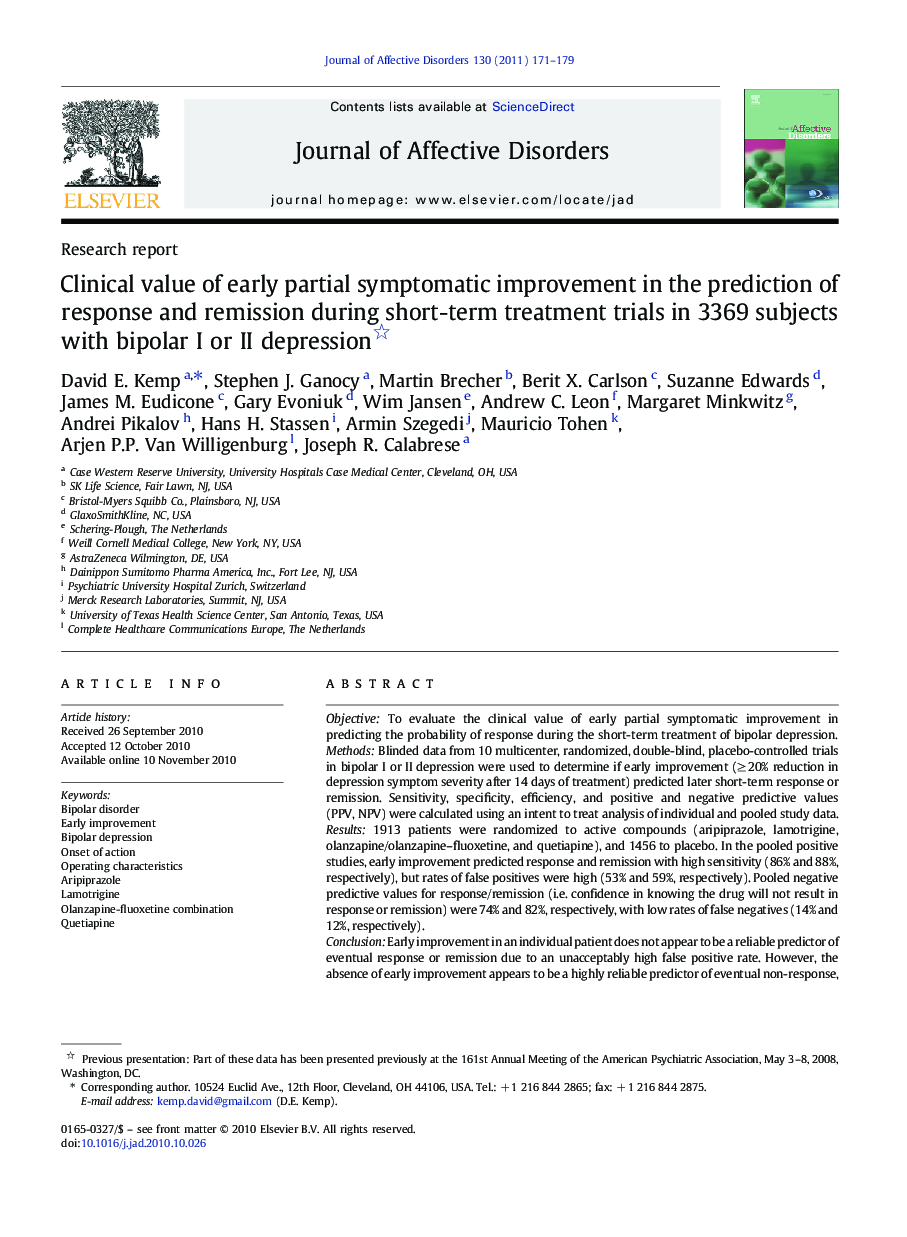| کد مقاله | کد نشریه | سال انتشار | مقاله انگلیسی | نسخه تمام متن |
|---|---|---|---|---|
| 6236213 | 1608190 | 2011 | 9 صفحه PDF | دانلود رایگان |

ObjectiveTo evaluate the clinical value of early partial symptomatic improvement in predicting the probability of response during the short-term treatment of bipolar depression.MethodsBlinded data from 10 multicenter, randomized, double-blind, placebo-controlled trials in bipolar I or II depression were used to determine if early improvement (â¥Â 20% reduction in depression symptom severity after 14 days of treatment) predicted later short-term response or remission. Sensitivity, specificity, efficiency, and positive and negative predictive values (PPV, NPV) were calculated using an intent to treat analysis of individual and pooled study data.Results1913 patients were randomized to active compounds (aripiprazole, lamotrigine, olanzapine/olanzapine-fluoxetine, and quetiapine), and 1456 to placebo. In the pooled positive studies, early improvement predicted response and remission with high sensitivity (86% and 88%, respectively), but rates of false positives were high (53% and 59%, respectively). Pooled negative predictive values for response/remission (i.e. confidence in knowing the drug will not result in response or remission) were 74% and 82%, respectively, with low rates of false negatives (14% and 12%, respectively).ConclusionEarly improvement in an individual patient does not appear to be a reliable predictor of eventual response or remission due to an unacceptably high false positive rate. However, the absence of early improvement appears to be a highly reliable predictor of eventual non-response, suggesting that clinicians can have confidence in knowing when a drug is not going to work during short-term treatment. Patients who fail to demonstrate early improvement within the first two weeks of treatment may benefit from a change in therapy.
Journal: Journal of Affective Disorders - Volume 130, Issues 1â2, April 2011, Pages 171-179